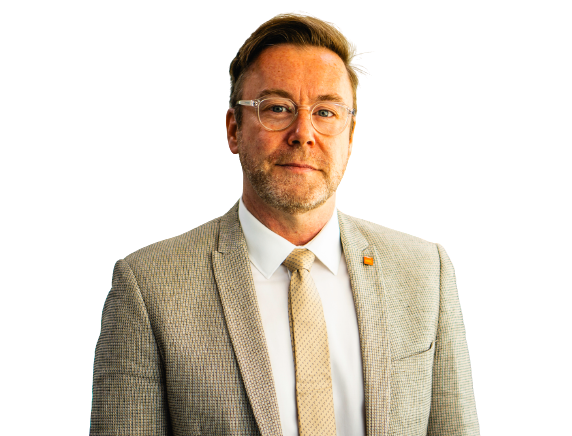-
Search -
Accessibility -
Members Login
24 October 2024
ICVA has made a significant impact within International Geneva since 1962, playing a crucial role in amplifying the voice of NGOs to shape the humanitarian ecosystem. We serve as a bridge between NGOs and influential international institutions, including the United Nations, and ensure that the priorities of crisis affected people are at the heart of global decision-making processes to maximise relevance and reach.
As Geneva solidified its role as the centre for global diplomacy, ICVA has worked tirelessly to embed the voices of humanitarian, women and refugee led organisations in crucial conversations to shape an effective and accountable humanitarian system.
For over six decades, in a world traditionally dominated by state actors and large intergovernmental organisations, ICVA has engaged with the United Nations, Member States and human rights bodies to elevate NGO perspectives and enable frontline organisations to influence key humanitarian policies.
We know that civil society adds value beyond project implementation. NGOs bring unmatched on-the-ground expertise and operational understanding: their insights strengthen the relevance and positive impact of humanitarian policies and processes for crisis-affected populations.
Throughout the decades, ICVA and our membership have played a central role in shaping the reform of the humanitarian system through a focus on embedding quality, accountability and inclusiveness in humanitarian architecture.
During the 1990s, as the post-Cold War era reshaped global politics and humanitarian needs, ICVA played a crucial role in reforming the UN’s humanitarian coordination structures. We were particularly influential in discussions around the establishment of the United Nations Office for the Coordination of Humanitarian Affairs (OCHA) in 1991-1992, and in advocating for stronger partnerships between the UN and NGOs through the creation and evolution of the Interagency Standing Committee (IASC).
Today, ICVA continues to play a central role in leading NGO engagement within the Geneva-based IASC Secretariat. ICVA supports both national and international NGO members to take direct representation roles in global structures including the IASC Principals, Deputies and Operational Policy and Advocacy Group. ICVA’s leadership within the IASC Emergency Directors Group helps ensure that global policy and advocacy is directly connected and relevant to the operational realities of NGOs globally. ICVA has helped NGOs sound the alarm when humanitarian coordination was failing and pushed for high-level engagement in Ethiopia, Sudan and Myanmar.
Another standout contribution from ICVA has been our leadership in humanitarian financing reform. Through our active role in the Grand Bargain process, launched at the 2016 World Humanitarian Summit, ICVA has championed efforts to localise aid and increase direct funding to national and local NGOs. This has been vital in ensuring that smaller, grassroots organisations – often the first responders during crises – can access much-needed resources and decision-making spaces. ICVA has effectively lobbied UN agencies and donors to reduce bureaucratic obstacles that prevent grassroot organisations from accessing critical funds.
Our deep commitment to locally led response is exemplified by our promotion of local humanitarian leadership and the “Principles of Partnership”, and our push to ensure accountability and transparency localisation performance. Our growing body of localisation baselines (Yemen, Ukraine, with Iraq and West Africa Region in progress) quantify the progress and performance of the system towards localised humanitarian action.
A hallmark of ICVA’s work has been its steadfast commitment to humanitarian principles, such as neutrality, impartiality, and independence. This commitment is particularly critical in Geneva, where much of the world’s humanitarian law and standards are debated and agreed upon.
ICVA’s advocacy has helped shape global policies on the protection of displaced children and women facing gender-based violence during conflicts, with notable influence during the 2021 UNHCR High Commissioner’s Dialogue on Protection Challenges. In contexts like Sudan, Afghanistan and Myanmar, where principles of neutrality and independence have been under strain, ICVA’s input in Geneva-based platforms has contributed to strengthening the global commitment to these principles.
ICVA’s recent contributions include our leadership in preparing for and mitigating against global crises, including climate change and pandemics. ICVA has actively pushed for the integration of climate considerations into global humanitarian responses. Through our involvement in the establishment of the Climate and Environment Charter for Humanitarian Organisations, ICVA has helped bring the voices of civil society into high-level discussions on climate-induced displacement and the need for adaptive, climate-resilient humanitarian strategies.
During the COVID-19 pandemic, ICVA worked closely with WHO, Gavi Alliance and UNICEF to ensure that NGOs could access vaccinations for their staff and partners, co-led the development of a global pandemic system-strengthening plan for humanitarian settings and supported members and coordination structures to navigate the unique challenges posed by lockdowns, especially in fragile contexts like Syria, Yemen, and South Sudan.
Looking to the future, ICVA’s commitment to increasing the representation and meaningful engagement of NGOs and fostering principled partnerships in International Geneva will only grow stronger.
As new challenges arise, whether climate change-induced disasters, migration crises, or health emergencies, ICVA will lead the charge in advocating for more inclusive, adaptive, and equitable governance structures within International Geneva.
We believe that International Geneva must remain a beacon of hope, a place where civil society’s voices are not just heard but are key drivers of global humanitarian action. ICVA will continue to amplify NGO voices, foster meaningful partnerships, and champion the systemic changes needed to create a more just and humane world for all.
